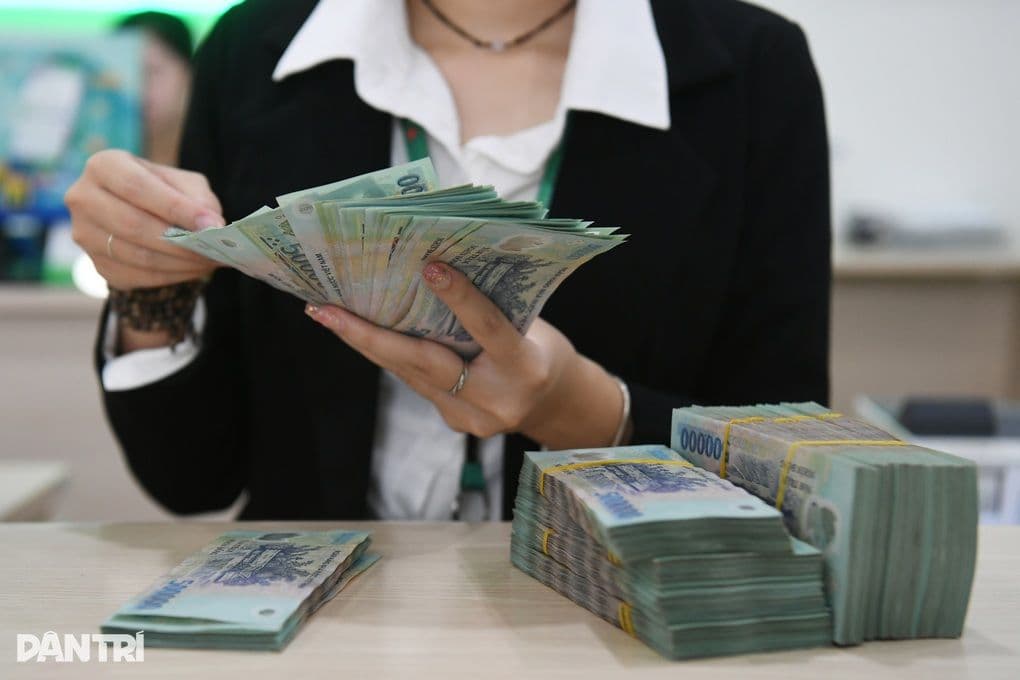The Golden Standard Goes Digital: Unpacking Vietnam's Mandatory Transfer Revolution
Vietnam's gold market is transforming. Explore new rules mandating bank transfers for high-value transactions, impacting buyers, sellers, and market transparency.

The Tipping Point: Mandating Transfers for Precious Transactions
Vietnam's financial landscape is witnessing a significant shift, particularly within its historically cash-dominant gold market, with the recent enforcement of . Effective October 10th, this new regulation introduces a pivotal requirement: all gold purchase and sale transactions valued at 20 million VND or more per customer per day must now be settled exclusively through bank transfers. This marks a decisive move by the to usher in an era of enhanced financial transparency and traceability. The decree explicitly states that traditional payment methods such as credit cards or promotional vouchers are no longer permissible for transactions exceeding this threshold. The SBV’s rationale behind setting the 20 million VND limit is clear: it’s a proactive measure designed to prevent the circumvention of regulations, often seen when customers attempt to "game the system" by splitting larger transactions into smaller, below-threshold amounts to avoid official scrutiny. This mandate fundamentally redefines how high-value gold transactions are conducted, pushing both consumers and businesses towards greater formalization within the precious metals sector, laying the groundwork for a more regulated and transparent economy.
Beyond Cash & Card: What the 20 Million VND Rule Means for You
For everyday consumers and businesses, the 20 million VND rule necessitates a fundamental change in how they approach gold transactions. Gone are the days when a substantial gold purchase could be made purely with cash or even through credit card swipes for amounts exceeding the new daily limit. Now, a valid bank account for both the buyer and the seller is not just a convenience, but a strict requirement for larger dealings. This shift isn't merely about digitalizing payments; it's a strategic move to inject greater transparency into the circulation of gold bars and other high-value gold products. Regulators are keen to curb risks associated with money laundering and to formalize the flow of capital that might otherwise operate in the shadows. The intention is to illuminate transactions that have historically been opaque, reducing avenues for illicit financial activities. However, the implementation isn't without its immediate questions. Leading gold retailers like and have voiced concerns, seeking clarification on whether the 20 million VND threshold applies to individual transactions or represents the cumulative value of all gold dealings by a single customer within a day. This distinction is crucial, as the latter interpretation would significantly broaden the scope of the regulation and could create operational complexities if customers attempt to make multiple smaller purchases to bypass the transfer requirement.
Industry Echoes: Navigating Nuances and Unanswered Questions
While the spirit of is largely welcomed for its transparency-boosting objectives, the practicalities of its implementation have sparked considerable discussion within the gold industry. Major players, including industry giants like and , have been vocal in their requests for clearer guidance from the . Their primary concern revolves around the precise interpretation of the "20 million VND in a day or more per customer" clause. Does this mean any single transaction over 20 million VND triggers the bank transfer mandate, or does it encompass the aggregate value of multiple smaller transactions made by the same customer within a 24-hour period? This isn't just a semantic quibble; it has profound operational implications. Without explicit clarification, businesses face potential compliance headaches and the risk of inadvertently contravening the new rules. If the cumulative value is the benchmark, retailers would need sophisticated systems to track individual customer's daily spending across all transactions, a task that could prove cumbersome and prone to error. The SBV’s intention to prevent "lách luật" – or loophole exploitation through transaction splitting – is well understood, but an ambiguous definition could ironically create new avenues for evasion or, at the very least, significant friction for legitimate businesses and consumers.
Forging a Transparent Future: The Long-Term Vision for Vietnam's Gold Market
Beyond the immediate payment mandates, represents a far more ambitious overhaul of gold market, signalling a strategic pivot towards greater liberalization and international integration. Crucially, the decree abolishes the State's long-standing monopoly on gold bar production, a move designed to foster competition and bring domestic gold prices more in line with global benchmarks. This fundamental shift will see the central bank issuing specific quotas and licenses, on a case-by-case basis, to eligible enterprises and commercial banks for the import and export of both gold bars and raw gold. While the official list of licensed entities is still pending, this opens up the market significantly. The industry itself is already looking ahead, with proposals like suggestion to permit the trading of foreign gold accounts to better balance physical gold positions, which the SBV has indicated it will consider by potentially amending Circular 40. Similarly, and have advocated for allowing commercial banks to outsource gold bar production, drawing parallels to previous arrangements. These discussions underscore a clear long-term vision: a gold market that is not only transparent and resilient to illicit flows but also competitive, efficient, and better integrated into the global financial system.
Related Articles

Sweet Success, Bitter Policy? Navigating Vietnam's Unprecedented Coffee Season

Sweet Success, Bitter Policy? Navigating Vietnam's Unprecedented Coffee Season

The Reluctant Anchor: Gold's Price as a Pulse Check on Global Stability

The Reluctant Anchor: Gold's Price as a Pulse Check on Global Stability

The Disposable Income Dividend: Vietnam's Bold Move to Revitalize Personal Finances

The Disposable Income Dividend: Vietnam's Bold Move to Revitalize Personal Finances

Ghana's Forex Frontier: Balancing Strict Repatriation with Exporter Resilience
